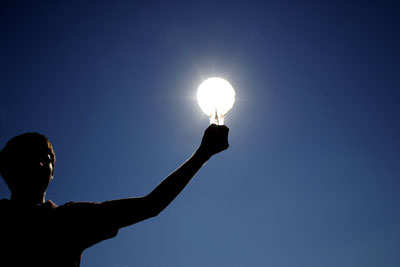All Nonfiction
- Bullying
- Books
- Academic
- Author Interviews
- Celebrity interviews
- College Articles
- College Essays
- Educator of the Year
- Heroes
- Interviews
- Memoir
- Personal Experience
- Sports
- Travel & Culture
All Opinions
- Bullying
- Current Events / Politics
- Discrimination
- Drugs / Alcohol / Smoking
- Entertainment / Celebrities
- Environment
- Love / Relationships
- Movies / Music / TV
- Pop Culture / Trends
- School / College
- Social Issues / Civics
- Spirituality / Religion
- Sports / Hobbies
All Hot Topics
- Bullying
- Community Service
- Environment
- Health
- Letters to the Editor
- Pride & Prejudice
- What Matters
- Back
Summer Guide
- Program Links
- Program Reviews
- Back
College Guide
- College Links
- College Reviews
- College Essays
- College Articles
- Back
Light Pollution Hurts
They say New York is the city that never sleeps, the people are up, and the lights are on twenty-four seven glowing like stars. Places
like New York, and many other cities, because of their constant activity cause light pollution and although lights are useful in everyday life, light pollution causes harm to the environment
and can prevent star-gazers from viewing the stars.
Daily people do things without thinking of the effects on the world, things as simple and habitual as leaving a light on can harm the Earth. An experiment by researchers from several European institutions revealed a correlation between artificial light exposure in
relation to the numerical discrepancy of nocturnal and diurnal species in an area; specifically, it showed that when an aquatic
environment was exposed to light the number of diurnal species awake during the night increased and the nocturnal species decreased.
Animals are all different and the muddled day to night time can interrupt their habits and cause confusion among them. If people could replace lights with more efficient and necessary lighting the animals could experience a better life, the IDA (International Dark-Sky Association) has a whole list of approved, increasingly environmentally friendly fixtures and even a recommended CCT, or Color Correlated Temperature, number for lightbulbs, by taking
these steps to improving the usage and effectiveness of the lights, humans can prevent unnecessary light pollution.
Light Pollution effects everyone, not only the animals, but humans as well, artificial light exposure is known to be linked to
melatonin suppression that can affect humans’ circadian systems mainly affecting their sleeping patterns.
Melatonin suppression can also increase the risk for several types of cancer including breast cancer.

Similar Articles
JOIN THE DISCUSSION
This article has 0 comments.

I want to inspire people to make a difference even if they are only doing small things. Everyone can help our Earth.